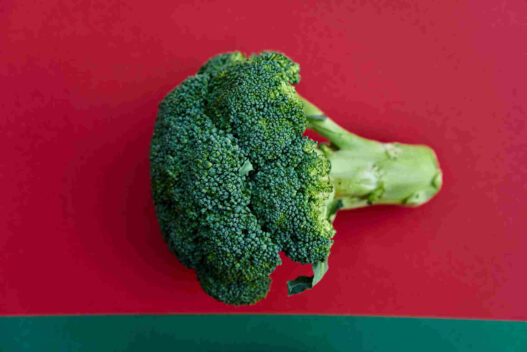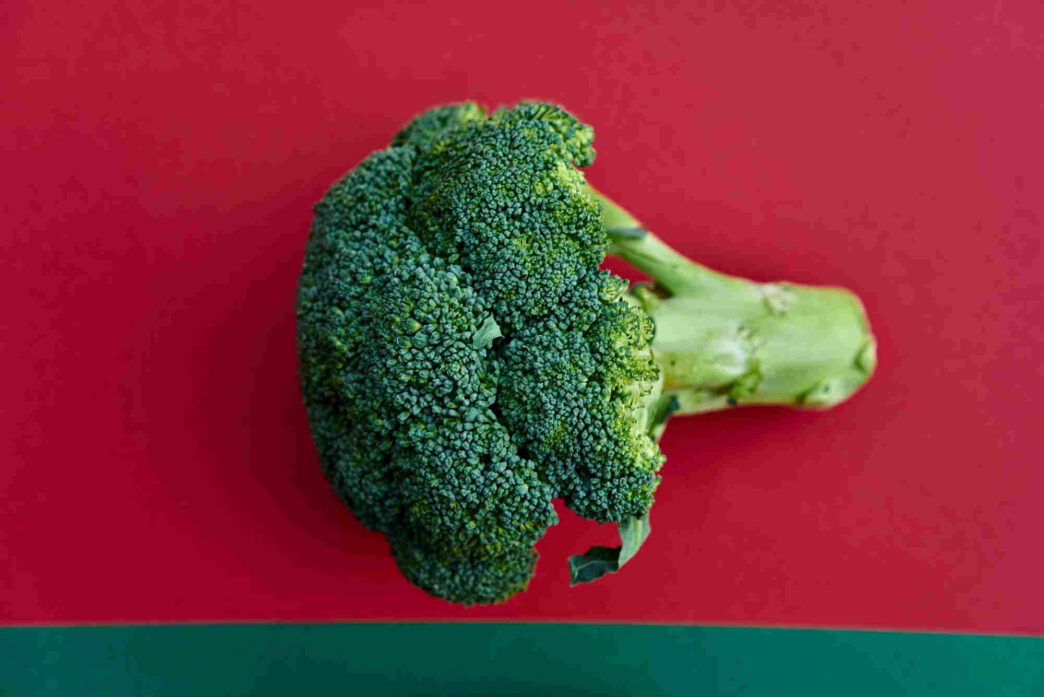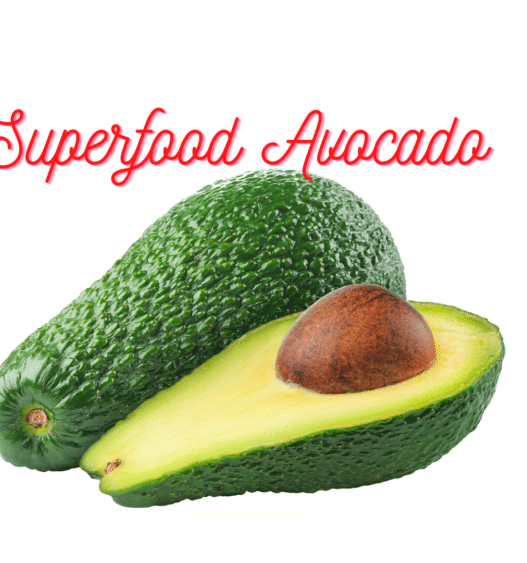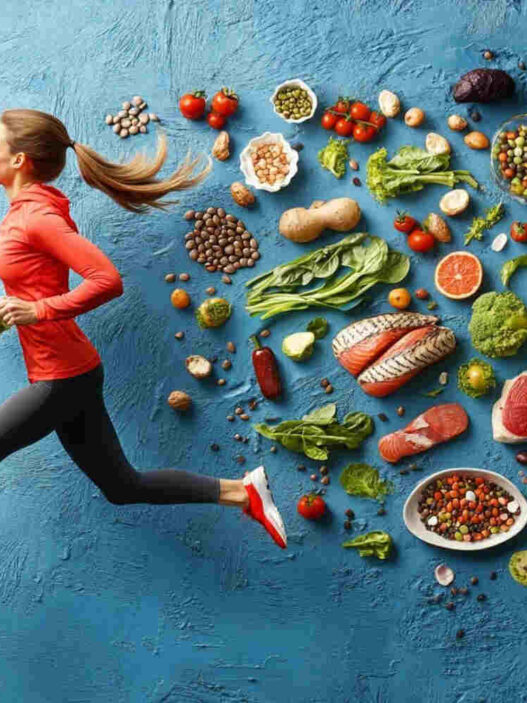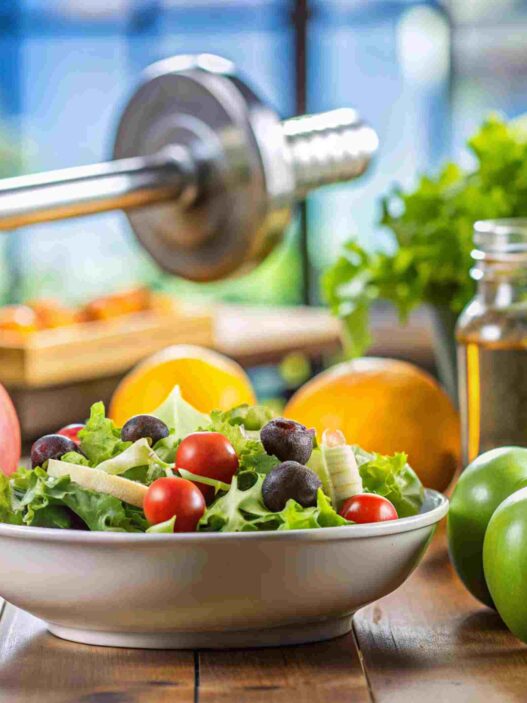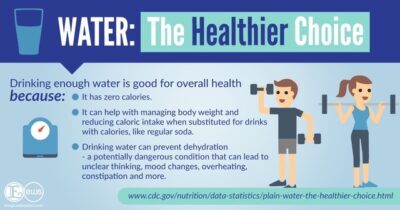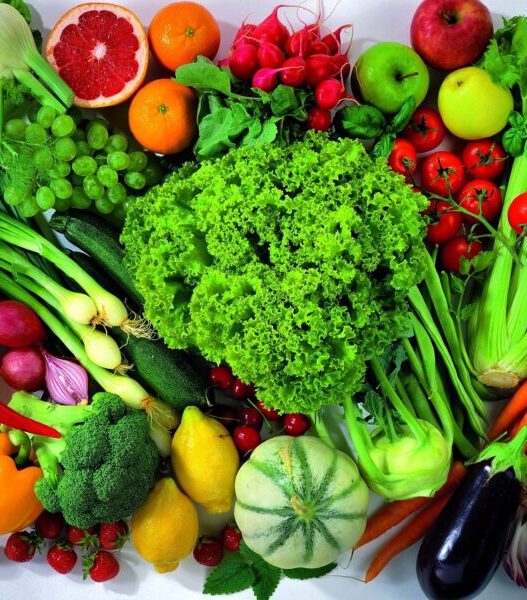Broccoli is an edible green plant in the cabbage family. It is a cruciferous vegetable that is well-known for its extensive nutritional advantages and as a superfood. It is one of the healthiest foods on the planet! Here are the superfood broccoli nutrition facts, health benefits, and how to cook broccoli to preserve its nutritional value for maximum nutrition. Additionally, broccoli as a functional food and as a conventional food along with any side effects/precautions, and broccoli vs cauliflower are discussed. Do check out a healthy way of cooking broccoli and how to boil broccoli to get maximum nutritional benefits for your health.
Superfood Broccoli – One Of The Healthiest Vegetables On Planet
Broccoli is a green plant in the cabbage family, a highly valued vegetable, coming under the top 10 superfoods. Vegetables like broccoli belonging to the plant genus Brassica contain tons of health-promoting compounds and potentially powerful phytochemicals.
Broccoli, cauliflower, cabbage, kale, and brussels sprouts are among the cruciferous vegetables. Broccoli provides antioxidants and phytonutrients which protect against diseases and promote healing throughout your body. Cruciferous vegetables support the body’s natural detoxification processes and lower inflammation.
Superfood broccoli is considered one of the most nutritious vegetables when cooked properly. Hence, it is important to understand how to cook broccoli and how to boil broccoli so that all the nutrients in the broccoli are preserved and are not lost during cooking broccoli.
Broccoli Nutrition facts
Raw broccoli is 90% water, 7% carbohydrates, 3% protein, and contains negligible fat.
Glycemic Index
The Glycemic Index (GI) of Broccoli is 15, which is low GI. The glycemic load of Broccoli is around 1 for 1 cup of Broccoli and calories are around 26.
Vitamin C and Calcium
One cup of Broccoli has the same amount of vitamin C as oranges and as much calcium as whole milk.
Low in calories
Superfood broccoli is very low in calories, providing only 31 calories per cup (91 grams), but contains a wealth of nutrients and antioxidants that support many aspects of human health.
Antioxidants and Fiber
Superfood broccoli has antioxidants and fiber. It contains anti-cancer and anti-viral properties with its selenium, which helps in fat loss too.
Vitamins and Minerals
Superfood broccoli is also rich in vitamins and minerals like Calcium, Iron, Phosphorous, Potassium, Zinc, Thiamin, Riboflavin, Niacin, Vitamins A, B6, B12, D, E, K, and Folate.
Sulforaphane
The Sulforaphane compound in superfood broccoli has many health benefits:
- Detox
- Brain Health
- Heart Health
- Increases Antioxidant Glutathione
- Reduces Inflammation
- Slows Aging
- Helps Stop Hair Loss
- Boosts Liver Function
- Cancer-Fighting Activity
Health Benefits of Superfood Broccoli
Superfood Broccoli helps lowering blood sugar in Type 2 diabetes
Functional foods and their nutraceutical components are now considered supplementary treatments for type 2 diabetes and the prevention of its long-term complications.
Superfood Broccoli Prevents the Risk of Developing Certain Cancers
Superfood broccoli offers many health-promoting properties owing to its content of antioxidants and anticarcinogenic compounds. Several studies have demonstrated that broccoli might be beneficial in reducing the risk of the development of certain forms of cancer.
Numerous epidemiological studies also indicate that Brassica vegetables in general, and superfood broccoli protect humans against cancer since they are rich sources of glucosinolates as well as possessing a high content of flavonoids, vitamins, and mineral nutrients.
A number of research studies suggest that a diet rich in cruciferous vegetables may lower rates of a variety of cancers, including breast, pancreatic, bladder, lung, prostate, and colon cancer. Certain enzymes in cruciferous veggies may help protect cell DNA from damage, and others may have antioxidant properties.
Sulforaphane is a phytochemical that is usually found in cruciferous vegetables and is known to have a depressive effect on gastric cancer.
Superfood Broccoli has Antioxidant Properties
Vitamin C in the superfood broccoli is an antioxidant, it supports the immune system. Broccoli stems are studied widely due to their health-promoting properties.
Cruciferous vegetables increase glutathione – the master antioxidant of the body which may play a role in the prevention of heart disease, cancer, and other diseases.
Superfood Broccoli helps treat Skin diseases
One unusual phytotherapeutic role of the superfood broccoli is for skin diseases–the juice of the leaves is used to treat warts.
Superfood broccoli prevents constipation and helps in fat loss
Broccoli is a good carb and high in fiber, which prevents constipation, aids in digestion, and helps in fat loss.
Superfood broccoli lowers cholesterol levels
According to one study, steamed broccoli is particularly useful for lowering cholesterol levels.
Broccoli Sprouts have greater health benefits than broccoli
Young broccoli sprouts as a functional food contain many bioactive compounds, especially sulforaphane, much higher than superfood broccoli. Hence they are truly considered to be the powerhouse of nutrition. More research is going on regarding how broccoli sprouts are useful in cancer prevention and for cancer-fighting potential. For more details on the health benefits of broccoli sprouts, refer to this article.
Broccoli as a FUNCTIONAL FOOD
Foods for a specified health use are referred to as functional foods. Functional foods are those selected, produced, or consumed for reasons beyond calorie and nutrient content. This term was coined in Japan, where the functional food market is one of the most advanced in the world. Functional foods are divided into four categories: modified foods, conventional foods, medical foods, and special dietary foods.
Broccoli as a CONVENTIONAL FOOD
Conventional foods are simple, unmodified whole foods like vegetables and fruits. These foods have been linked to reduced cancer and chronic disease risk, heart health, and urinary tract function. Examples include broccoli, tomatoes, and kale.
Precautions & When to Avoid Broccoli
If you have hypothyroidism (underactive thyroid), it is better to avoid cruciferous vegetables — such as kale, cauliflower, broccoli, cabbage, and Brussels sprouts. These vegetables have been shown, in certain situations, to interfere with how your thyroid gland uses iodine.
It is advisable to avoid/ reduce Cruciferous vegetables including broccoli if you have a thyroid disorder, IBS, or Kidney problems. Broccoli may cause digestive distress, particularly in people with irritable bowel syndrome (IBS)
In general, broccoli is safe to eat, and any side effects are not serious. The most common side effect is gas or bowel irritation, caused by broccoli’s high amounts of fiber. All cruciferous vegetables can make you gassy if eaten more.
How to Cook & Boil Broccoli?
What is the healthy way to cook broccoli? How to cook broccoli to preserve its nutritional value? How to boil broccoli? Superfood broccoli is eaten either raw or cooked. Best if eaten sauté, roast, steam, and stir-fry. One should also know how to boil broccoli. If you want to boil, then do little only because more boiling removes broccoli’s nutrients.
Boiling substantially reduces the levels of glucosinolates, while other cooking methods, such as steaming, microwaving, and stir-frying, have no significant effect on glucosinolates levels. Hence, it is important to know how to boil broccoli correctly.
In a study involving various cooking methods to check the correct way of cooking broccoli that retains glucosinolates, it was observed that among the various methods, cooking broccoli by steaming demonstrated an increased amount of total glucosinolates (+17%) while cooking broccoli by boiling-hot start and boiling-cold start showed reduced amounts of glucosinolates (-41% and -50% respectively). The study concluded that one can improve the health benefits of superfood broccoli by employing the optimum cooking or boiling method.
So if you want to preserve more glucosinolates, you must know how to cook broccoli correctly or how to boil broccoli without losing the glucosinolates.
How long to boil broccoli?
Further, how long to boil broccoli? Salt Cooking broccoli too long destroys the beneficial enzyme so it should be avoided.
The vitamin C content of broccoli stir-fried with extra virgin olive or sunflower oil is like that of the uncooked sample but has greater vitamin C than those samples stir-fried with other oils. Steaming is one of the best ways to maximize nutrients.
Eat broccoli raw in a salad, prefer an organic one. Steamed broccoli is the best. It retains its nutrition. It’s cleansing, healthful, and high in vitamin C, protein, and fiber.
Add the superfood broccoli to the steamer and cover; heat to medium flame and cook for around 5 minutes, the broccoli is ready with the best nutrient intact – do not overcook.

How to include the superfood broccoli in your diet and various dishes?
You can insert Broccoli in modern dishes like Sauteed Broccoli, Vegetable Pasta, Rainbow Salad, Broccoli Soup, melted Broccoli Spread, etc.
Broccoli goes well with Beef, butter, olive oil, cheddar cheese, chicken, curry, egg, feta cheese, pasta, rice, tahini, tofu, yogurt, etc.
Broccoli almond soup is a very healthy dish for dinner. Toss broccoli with lots of freshly ground black pepper and butter and dress with lemon zest is also a tasty dish.
You can add red pepper or other spices like garlic, rosemary, sage, oregano, rosemary, and thyme to add a punch of spices to your broccoli soup and other broccoli dishes.
Frozen broccoli works well in soups and provides a colorful way to add vegetables to your day.

Final Words
If you are looking for one of health-promoting food, include Superfood Broccoli in your grocery cart, the perfect food for balanced nutrition.
Eat this superfood, a minimum of two times a week for health benefits.
You can pair Broccoli with toasted almond or toasted sesame seed to enhance health benefits. Green vegetable is good for healthy gut bacteria, bowel health, and improving overall immune health.
And yes, for obtaining all the above health benefits, you must know how to cook broccoli correctly to retain its maximum nutrition.
Further, for powerhouse nutrition, sprouting broccoli will provide you with several times higher nutrition.
Sources
- Broccoli sprouts in cancer prevention.
- Chemical and biological characterization of nutraceutical compounds of broccoli.
- An overview of health-promoting compounds of broccoli (Brassica oleracea var. Italica) and the effect of processing.
- Potential efficacy of broccoli sprouts as a unique supplement for management of type 2 diabetes and its complications.
- Aryl hydrocarbon Receptor activation during in vitro and in vivo digestion of raw and cooked broccoli (Brassica oleracea var. Italica).
- Effects of stir-fry cooking with different edible oils on the phytochemical composition of broccoli
- Storage in high-barrier pouches increases the sulforaphane concentration in broccoli florets
- Evaluation of different cooking conditions on broccoli (Brassica oleracea var. italica) to improve the nutritional value and consumer acceptance

Hetal Datta Sachde is a Life and Well-being coach, Youtuber, Trainer, Speaker, Yoga instructor, and Writer. She is a personal and corporate Mentor. She has written a book ‘Life tweak’. According to her, “A healthy outside starts from the inside – Healthy lifestyle – Healthy life”. Hetal is running a You Tube channel ‘Diva Lifestyle’ on wellness and meditation.
